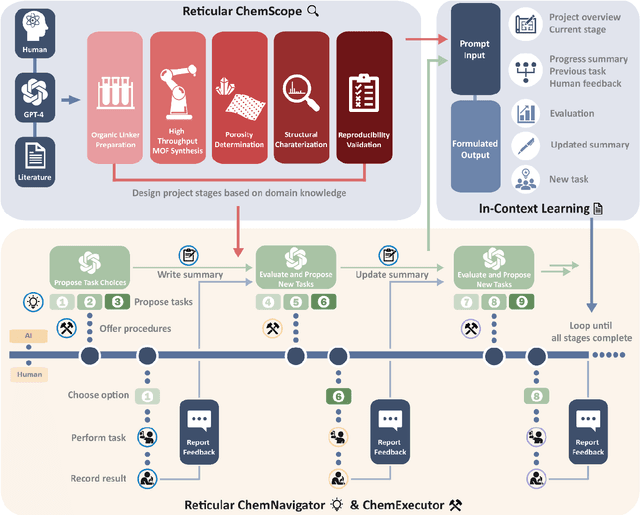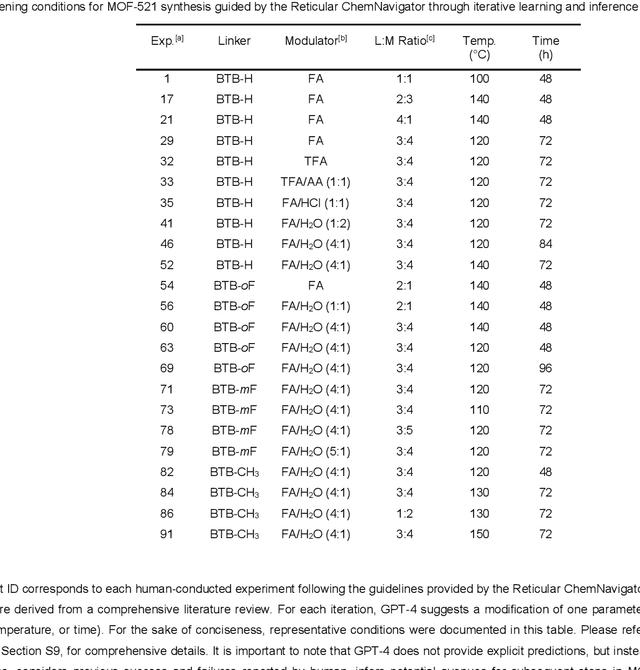Zichao Rong
GPT-4 Reticular Chemist for MOF Discovery
Jun 20, 2023



Abstract:We present a new framework integrating the AI model GPT-4 into the iterative process of reticular chemistry experimentation, leveraging a cooperative workflow of interaction between AI and a human apprentice. This GPT-4 Reticular Chemist is an integrated system composed of three phases. Each of these utilizes GPT-4 in various capacities, wherein GPT-4 provides detailed instructions for chemical experimentation and the apprentice provides feedback on the experimental outcomes, including both success and failures, for the in-text learning of AI in the next iteration. This iterative human-AI interaction enabled GPT-4 to learn from the outcomes, much like an experienced chemist, by a prompt-learning strategy. Importantly, the system is based on natural language for both development and operation, eliminating the need for coding skills, and thus, make it accessible to all chemists. Our GPT-4 Reticular Chemist demonstrated the discovery of an isoreticular series of metal-organic frameworks (MOFs), each of which was made using distinct synthesis strategies and optimal conditions. This workflow presents a potential for broader applications in scientific research by harnessing the capability of large language models like GPT-4 to enhance the feasibility and efficiency of research activities.
 Add to Chrome
Add to Chrome Add to Firefox
Add to Firefox Add to Edge
Add to Edge